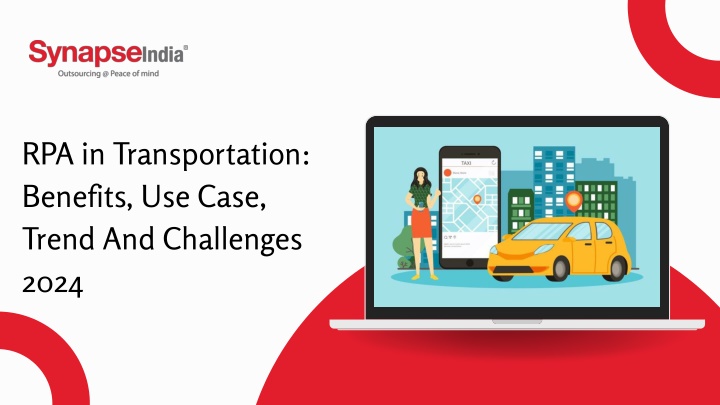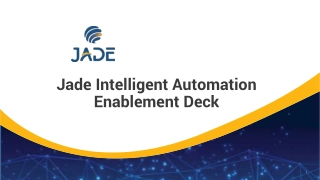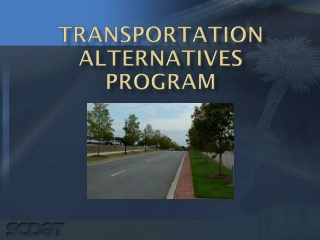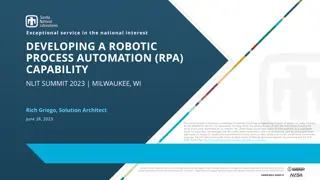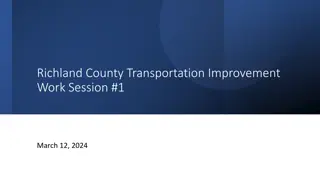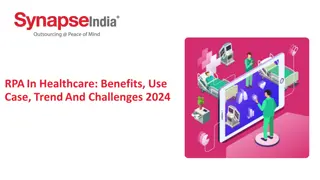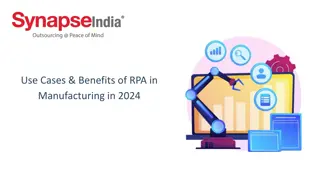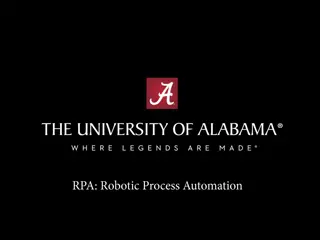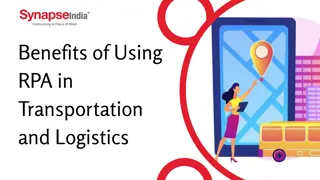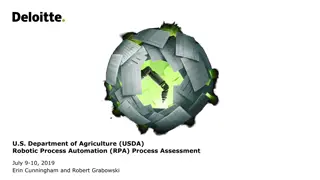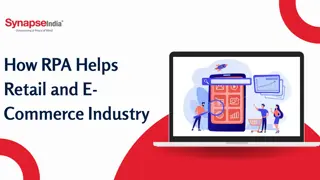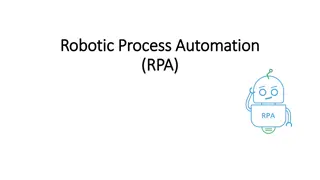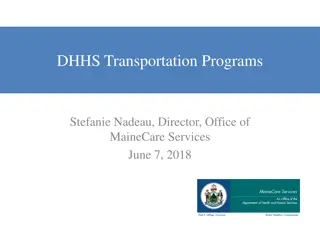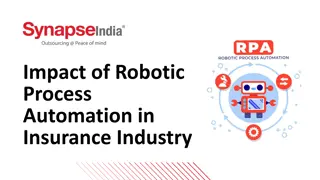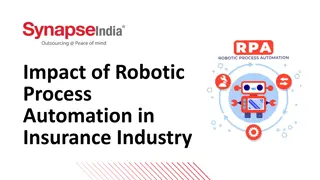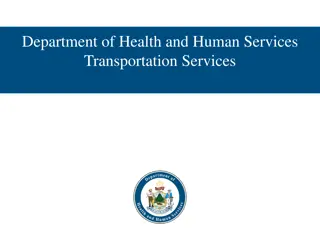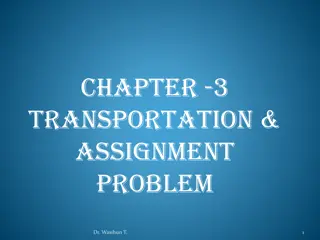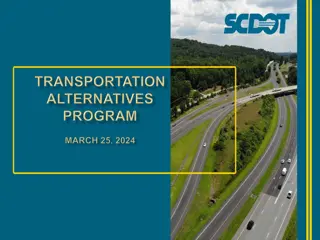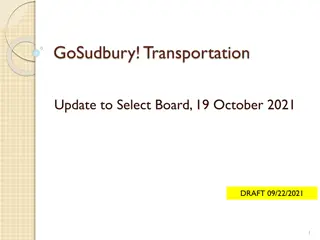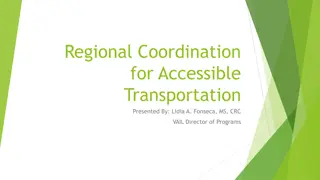RPA in Transportation Benefits, Use Case, Trend And Challenges 2024
Reduce costs and improve efficiency with our professional RPA solutions in transportation. We specialize in automating repetitive tasks, ensuring accuracy and enhancing productivity. Our tailored services deliver exceptional performance and reliabili
Uploaded on Aug 02, 2024 | 18 Views
Download Presentation

Please find below an Image/Link to download the presentation.
The content on the website is provided AS IS for your information and personal use only. It may not be sold, licensed, or shared on other websites without obtaining consent from the author.If you encounter any issues during the download, it is possible that the publisher has removed the file from their server.
You are allowed to download the files provided on this website for personal or commercial use, subject to the condition that they are used lawfully. All files are the property of their respective owners.
The content on the website is provided AS IS for your information and personal use only. It may not be sold, licensed, or shared on other websites without obtaining consent from the author.
E N D
Presentation Transcript
RPA in Transportation: Benefits, Use Case, Trend And Challenges 2024
Table Of Content 01 Introduction to RPA in Transportation 02 Benefits of RPA in Transportation 03 Use Cases of RPA in Transportation 04 Trends in RPA for 2024 05 Challenges of RPA in Transportation 06 Conclusion & Future Outlook
Introduction to RPA in Transportation Definition: Robotic Process Automation (RPA) uses software robots to automate repetitive tasks Scope: In transportation, RPA streamlines operations, enhances efficiency, and reduces errors Objective: Explore how RPA is reshaping the transportation industry in 2024
Benefits of RPA in Transportation Enhanced Efficiency: Automates routine tasks like scheduling and invoicing. Cost Savings: Reduces operational costs by minimizing manual labor. Improved Accuracy: Minimizes human error in data entry and processing. Scalability: Easily adapts to increasing volumes of transactions and processes.
Use Cases of RPA in Transportation Fleet Management: Automates vehicle tracking and maintenance scheduling. Customer Service: Enhances support with automated responses and complaint handling. Booking Systems: Streamlines reservation and ticketing processes. Compliance Reporting: Ensures adherence to regulations with automated data collection and reporting.
Trends in RPA for 2024 AI Integration: Combining RPA with AI for predictive analytics and advanced decision-making. Cloud-Based RPA: Leveraging cloud platforms for flexible and scalable RPA solutions. and improve RPA in Transportation Robust Data Security: Enhanced focus on securing data processed by RPA systems. IoT Integration: Using IoT data to optimize RPA processes in real-time.
Challenges of RPA in Transportation Integration Issues: Difficulties in integrating RPA with existing legacy systems. Change Management: Resistance from staff adapting to new automated processes. Data Privacy: Ensuring compliance with data protection regulations. Initial Costs: High upfront investment in RPA technology and training.
Conclusion & Future Outlook Summary: RPA transforms transportation by enhancing efficiency, accuracy, and cost-effectiveness. Future Trends: Expect increased AI integration, cloud-based solutions, and IoT collaboration. Challenges Ahead: Address integration issues, data privacy concerns, and change management. Continued Evolution: RPA technology will evolve to meet industry needs and overcome current limitations.
Contact Us www.synapseindia.com info@synapseindia.com +18557962773
